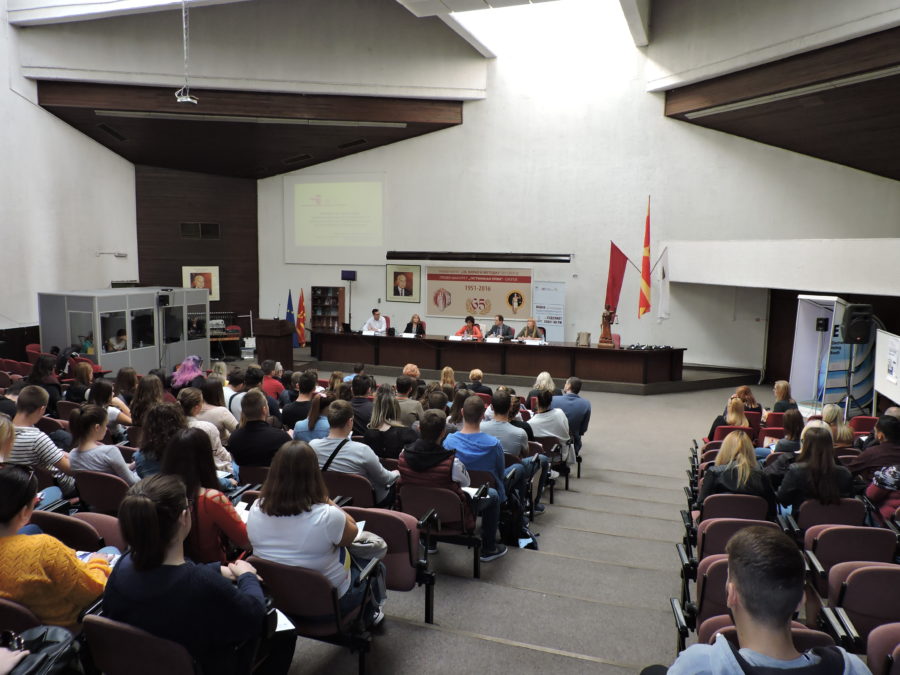“In the eyes of reasonable, just, truthful and informed person, the behaviour of a Judicial Council member should be flawless” – provision from the Code of Ethics of the Judicial Council.
All wrongdoings made by individuals, no matter in which capacity they are, and no matter whether they have been done intentionally or by negligence, have to be properly sanctioned. That is the role of judiciary – the last corrector of misconducts in a society and the last protector of human rights with direct impact to individuals’ life.
Judiciary, as all other institutions, is composed of human beings. Judges, together with the presidents of courts, have the main decision-making function, but also judicial associates and judicial administration staff are part of it as well. In order to protect human rights in practice, they have to be professionals on the highest level, persons with undoubtful integrity, conscientiousness and strong will to make justice in the society. Taking into consideration these proven characteristics and evidence-based results in their professional background, they have to be elected and promoted in the career grounded merit-based system. In the Macedonian society, Judicial council has mandate to do that. Therefore, the members of the Judicial council have to be “best of the best” among all in the judicial system. That’s why literally they are supposed to be “the brain” of the judiciary.
The main reason for establishing the Judicial council in 1992 (then called Republican Judicial Council) was increasing the independence of the judiciary. In fact, this new independent body composed of judges and distinguished lawyers, was supposed to become a guarantee for independent judiciary. At the very beginning it was prescribed by proposing election and dismissal of judges, and since 2006 it has taken over the role from Macedonian Parliament and it has been responsible for their election and dismissal. However, after more than 20 years of existence (first members of the Judicial council were elected in 1994), this body is still not recognised as a fully independent in the eyes of the public.
Therefore we at the Institute for Human Rights (IHR) have been investing a lot of efforts to bring Macedonian laws closer to international standards accepted by democratic societies, and even more, to bring practice closer to theory. Our engagement concerning Judicial Council’s work and overall functioning of this oversight body, started almost seven years ago when abuses in this field became too obvious for the public. It was the period when, for example, more than fifty judges were elected and promoted during last days, right before new, much more relevant, criteria had to be taken into consideration. That’s why IHR recognised this as an important issue that must be monitored and spoken out publicly. We have strived to increase transparency, accountability and effectiveness of everyday work of the Judicial Council.
Furthermore, based on our continuous monitoring and civil society pressure on Judicial council members as public function holders, “bona fidae” practical fulfilment of its operations has been apparently improved in the last years. However, there is still a long path for ensuring full transparency, accountability and effectiveness of the Judicial Council. More needs to be done in order to change the passive behavior of the institution for full achievement of their most important obligation – to secure the independence of the judiciary in the country. Macedonian citizens, who are tax payers in the budget by which salaries for Judicial Council members and all persons in judiciary are given, have decreased their trust in the Judicial Council and the judiciary in general. Therefore, more work needs to be concluded in order to gain back the citizens trust and prove that judiciary is the last and most important protector of human rights and the Judicial Council is justifying the reason it was founded – securing the independence, impartiality effectiveness of the judiciary.
Note: British Embassy Skopje offers its blog platform for guest posts to members of organisations who are partner implementers of UK’s programme assistance in the country. The views expressed in the guest posts are those of the authors.

